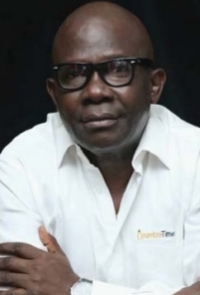
After decades of discontent with Nigeria’s governance structure and constitutional framework, a bold and comprehensive blueprint for national renewal has emerged from the just-concluded National Summit on the Future of Nigeria’s Constitutional Democracy, held from 16th to 17th July 2025 at the Transcorp Hilton Hotel, Abuja. Convened by The Patriots, a respected coalition of elder statesmen, intellectuals, and civic leaders under the stewardship of Chief Emeka Anyaoku, GCON, the Summit brought together a diverse range of stakeholders from civil society and faith-based groups to traditional rulers, youth representatives, women, diaspora Nigerians, and persons with special needs.
In an era of rising disillusionment, insecurity, poverty, and political dysfunction, the communique issued at the end of the Summit reads like both a call to conscience and a roadmap to national salvation. At the heart of the 22-point communiqué is a resounding rejection of the 1999 Constitution (as amended), which delegates describe as “deeply flawed, unrepresentative, and imposed by the military without the consent of the Nigerian people.” The consensus is that the document has outlived its usefulness. Top on the resolutions is the demand for a new people-driven Constitution, not just as a symbolic gesture of reform but as an imperative tool to restore genuine federalism, rebuild national cohesion, and unlock Nigeria’s development potential.
For decades, the unitary nature of the 1999 Constitution has stifled innovation, discouraged inclusion, and over-concentrated power at the center, creating a bloated federal structure that is inefficient, expensive, and distant from the people it purports to serve. To actualise a new constitutional order, the Summit proposes the convening of a Constituent Assembly through an Executive Bill by the President. The delegates should be elected on a non-partisan basis, with strong representation from special interest groups. Crucially, the Constitution produced must pass a national referendum, a move long overdue in the country’s democratic evolution.
Perhaps the most important undertone of the Summit is the reaffirmation that unity is not uniformity, and genuine nation-building can only thrive when all federating units feel a sense of ownership and autonomy. The call for geopolitical restructuring, state police, devolution of powers, and regional constitutions echoes long-standing agitations from across the country. These are not new ideas, they are long-overdue solutions that have been endlessly debated, but consistently ignored. The difference this time is the growing urgency. Nigeria is hemorrhaging from the failure to act.
The Summit did not mince words in highlighting the dire cost of governance, an over-bloated two-chamber National Assembly, unrestrained numbers of ministers and aides, and an inefficient administrative structure that prioritizes bureaucracy over service delivery. There is an explicit recommendation for streamlining political appointments, reducing ministries to not more than 15, and shrinking departments and agencies to one-quarter of their current size. Without cost control, the document notes, Nigeria risks descending into fiscal insolvency while the majority of its citizens remain trapped in multidimensional poverty Nigeria’s democracy, the communiqué insists, has become a “contest for control, not service.”

With courtrooms now deciding electoral outcomes more than the ballot box, reforms are deemed urgent. These include one-day elections, BVAS technology, real-time electronic transmission of results, and provisions for independent candidacy. Notably, the Summit calls for an end to political “cross carpeting,” proposing that defecting elected officials should automatically lose their seats, a move designed to end party opportunism and restore electoral accountability. The communique touches on some of the country’s most pressing existential threats which include insecurity, corruption, and social exclusion. Delegates call for the restructuring of the justice system to reduce case backlogs, the creation of special courts for corruption and terrorism, and the separation of the Attorney-General’s office from partisan political influence.
The data on security is staggering, the Summit noted. Over 600,000 Nigerians were killed between May 2023 and April 2024; over 3 million displaced. The Summit demands new strategies including community-based border policing, the equitable rotation of security leadership, and legal empowerment of state police. With over 20 million children out of school and 130 million Nigerians in poverty, the communique emphasizes the need for constitutional guarantees on education, health, and employment. It calls for gender equity, protection of the girl child, and the civic inclusion of Nigerians in the diaspora, who have long been disenfranchised despite contributing billions in remittances annually.
This communique isn’t just another policy document; it is a clarion call for survival. Nigeria stands today at a dangerous precipice, where insecurity, economic hardship, and distrust in governance have eroded faith in the very idea of the country. The resolutions of this Summit offer a serious, structured, and inclusive pathway to national renewal. Ignoring them would be a colossal error of judgment. These are not radical demands, they are rational, overdue reforms that Nigeria must embrace to move forward as a modern, civilised state. If the leaders of today continue to delay this conversation, history, and the next generation, will not be kind to those who ignored it.
A new constitution will not fix everything overnight, but without one rooted in the will of the people, Nigeria cannot truly be called a democracy. The Summit ended with a note of hope and determination – “Together, we shall live to see that new, prosperous Nigeria where no child is left behind and where no man and woman is oppressed.” The Summit affirmed that such a Nigeria is possible, but only if we begin, in earnest, to build it now. The 22-point communiqué offers the blueprint; what remains is the political will.
• Sir Paul Nwosu PhD, Editor-in-Chief, Alpha Times.





